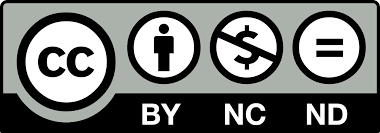Students' Preferences Regarding Scientific Clubs at the Faculty of Economic Sciences of the University of Warmia and Mazury in Olsztyn
Weronika Barańska
Faculty of Economic Sciences, University of Warmia and Mazury in Olsztynhttps://orcid.org/0009-0005-4687-2458
Natalia Kubica
Faculty of Economic Sciences, University of Warmia and Mazury in Olsztynhttps://orcid.org/0009-0005-8708-5397
Abstract
The purpose of the research was to comprehensively discuss the areas of scientific interest of students in the various majors at the Faculty of Economic Sciences at UWM in Olsztyn and to identify what activities they find most useful. The research was conducted by a diagnostic survey method using a questionnaire sheet. The survey shows that the scientific clubs at the Faculty of Economic Sciences correspond to the interests of students. Moreover, students indicated that the benefits and activities offered by the clubs are attractive and in line with their expectations. The activities provided by these organizations enable them to develop and achieve the goals they set while participating in the study clubs. The results of the study may contribute to the preparation of a better offer of scientific clubs at the Faculty of Economic Sciences at UWM in Olsztyn so that it is attractive and meets the needs of students of different majors as well as possible.
Keywords:
scientific clubs, students, interests, preferencesReferences
Bankston, A., Davis, S.M., Moore, E., Niziolek, C., & Boudreau, V. (2020). Research Culture: Why Scientific Societies Should Involve More Early-Career Researchers. eLife, 9, 1-7. https://doi.org/10.7554/eLife.60829.
Crossref
Google Scholar
Barnes, L., Grajales, J., Velasquez Baez, J., Hidalgo, D., & Padilla-Benavides, T. (2021). Impact of Professional and Scientific Societies’ Student Chapters on the Development of Underrepresented Undergraduate Students. Frontiers in Education, 6, 1-15. https://doi.org/10.3389/feduc.2021.763908.
Crossref
Google Scholar
Bęczkowska, A. (2019). Uczestnictwo w kole naukowym jako inwestycja w rozwój umiejętności społecznych i zawodowych. Zeszyty naukowe WSG. Seria Edukacja - Rodzina – Społeczeństwo, 35(4), 31-40. Google Scholar
Boichuk, N. (2018). Uczestnictwo w kole naukowym jako motywacja do rozwoju osobistego i naukowego studentów. Ternopil: Ternopil Ivan Puluj National Technical University. Google Scholar
Czapiewska, G. (2021). Rola kół naukowych w procesie kształcenia. Poznań: Bogucki Wydawnictwo Naukowe. Google Scholar
Feeney, S. (2018). Why Graduate Students Should Join Scientific Societies. Retrieved from https://www.asbmb.org/asbmb-today/opinions/080118/grad-students-should-join-scientific-societies (20.06.2024). Google Scholar
Gancarz, A. (2008). Wykorzystanie wiedzy i umiejętności zdobytych w Kole Naukowym Edukacji Międzykulturowej w pracy zawodowej absolwentów Wydziału Etnologii i Nauk o Edukacji Uniwersytetu Śląskiego. Edukacja Międzykulturowa, 2, 153-154.
Crossref
Google Scholar
Jabłońska, K., & Sobieraj, A. (2013). Metodyka dobierania próby badawczej w naukach społecznych. Bezpieczeństwo i Technika Pożarnicza, 4, 31-36.
Crossref
Google Scholar
Kołodziejczak, A., & Mierzejewska, L. (2021). Geografia społeczno-ekonomiczna: doświadczenia, szanse i wyzwania w procesie kształcenia. Poznań: Bogucki Wydawnictwo Naukowe. Google Scholar
Kurcz, L. (2005). Studenckie koła naukowe: rola i zadania opiekuna koła. In L. Kurcz & A. Gołdasz (Eds.). Sesje Studenckich Kół Naukowych, vol. 1, p. 6, 7. Materiały XLII Sesji Pionu Hutniczego AGH. Kraków: Wydawnictwo Studenckiego Towarzystwa Naukowego. Google Scholar
Kurczyk, B. (2015). Model organizacji koła naukowego a rozwój praktycznych kompetencji studentów. In P. Wdowińki (Ed.). Nauczyciel akademicki wobec wyzwań edukacyjnych, Łódź: Wydawnictwo Uniwersytetu Łódzkiego. Google Scholar
Łubek, B. (2016). Aktywność studentów w Studenckich Kołach Naukowych a ich decyzje zawodowe. Zeszyty Studenckiego Ruchu Naukowego Uniwersytetu Jana Kochanowskiego w Kielcach, Nauki Humanistyczno-Społeczne (Fascicles of Student Scientific Movement JKU in Kielce, Humanistic and Social Sciences), 25(1), 171-179. Google Scholar
Matczuk, P. (2007). Koło rachunkowości „Audytor” na Uniwersytecie Gdańskim. Wydawnictwo Stowarzyszenie Księgowych w Polsce. Koło Naukowe Harvard Google Scholar
Undergraduate Research Association (HCURA). Retrieved from https://hurainfo.org/. Google Scholar
Primus, C., Zimmerman A., Terovolas, A., Block, F., Brown, C., Burton, M., Edwards, A., Etson, C., Flores, S., Fry, C., Guillory, F., Ingram, S., McGee, R., Neely-Fisher, D., Paxson, S., Phelan, L., Suggs, K., Vega, L., Vuong, E., Luis Lujan, J., Ramirez-Alvarado, M., & Segarra, V. (2022). Scientific Societies Fostering Inclusivity in the Life Sciences Through Engagement of Undergraduate Scientists. Frontiers in Education, 7, 757816. https://doi.org/10.3389/feduc.2022.757816 (29.03.2022).
Crossref
Google Scholar
Śnieżek, E. (2017). Koła naukowe jako istotny element kształtowania wiedzy, umiejętności i kompetencji studentów. Łódź: Wydawnictwo SIZ. Google Scholar
Ustawa z dnia 20 lipca 2018 r. Prawo o szkolnictwie wyższym i nauce, t.j. Dz.U. z 2023 r., poz. 742. Google Scholar
Faculty of Economic Sciences, University of Warmia and Mazury in Olsztyn
https://orcid.org/0009-0005-4687-2458
Faculty of Economic Sciences, University of Warmia and Mazury in Olsztyn
https://orcid.org/0009-0005-8708-5397
License

This work is licensed under a Creative Commons Attribution-NonCommercial-NoDerivatives 4.0 International License.
An Author declares that his paper has not been published before (under the same or another title, or is a part of another publication) and does not infringe copyrights of other persons**. At the same time, the Author transfers to the Publisher the exclusive right to publish and to circulate this work in print in the form of a non-serial journal publication and in a form of an electronic publication.
The journal is available on Creative Common license CC-BY-NC-ND






